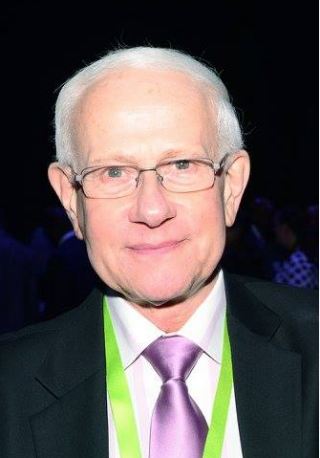Shadow director jeopardy stalks SA advisory boards
By *Gusti Coetzer (Signium Africa) and **J Michael Judin (Judin Combrinck Inc)
Advisory boards seem an obvious way forward for companies run by executives with limited global leadership exposure. One of the biggest advantages of advisory boards in South Africa is the facilitation of input and advice from wise old heads. In this way, highly respected, vastly experienced managers can make an important contribution to the company and the new South Africa.At the same time, younger managers and business school graduates benefit from the sort of knowledge not found on an MBA course.So, where’s the potential flaw?The pitfall is found in the grey area between advice and direction or between a general observation and a specific instruction.
If an instruction or direction is given, an advisor may be regarded, for legal purposes, as a ‘shadow director’ and that could spell trouble for any advisor who has not taken out insurance to cover the risks run by formal boards of directors in the event of liquidation or fraud.October 2018Some concepts are so useful in a new nation crying out for skills that widespread adoption is only a matter of time. The danger is that the advantages are so manifest they distract attention from the one potential flaw that could turn a well-intentioned initiative into catastrophe.For example, the coming trend around the establishment of advisory boards carries with it a largely overlooked risk that deserves to be examined in detail before any harm is done.
To explain …Advisory boards seem an obvious way forward for companies run by executives with limited global leadership exposure.One of the biggest advantages of advisory boards in South Africa is the facilitation of input and advice from wise old heads. In this way, highly respected, vastly experienced managers can make an important contribution to the company and the new South Africa.
At the same time, younger managers and business school graduates benefit from the sort of knowledge not found on an MBA course.Some businesses also recruit advisory board members for the ‘halo effect’. They borrow credibility or gravitas as a line-up of advisory board luminaries can smooth the path to the big league and might attract investors or assist in fundraising.Practical considerations also support the trend.Formal board structures are expensive to set up while company directors carry heavy fiduciary and statutory responsibilities.Remuneration of advisory board members is often modest, making these informal structures affordable for young, dynamic companies.In effect, relatively inexperienced executives tap into a wealth of knowledge at a discount while the business benefits from diversity and access to a wider range of opinions.
Of course, an ‘elder statesman’ is sometimes seen as a human Rolodex, with scores of local and international contacts. Gaining access to such a high-level network can be as simple as bringing a senior figure on to the advisory board.Other needs can also be addressed through the use of advisory boards. For example, a company planning to enter new, high-growth markets dominated by black consumers may need the insights of black influencers, who could be recruited to the advisory team.
Young advisors might also be used on an advisory board to lend digital skills to an older board with limited understanding of high-tech developments.For all of these reasons, many companies (and some charities) increasingly ask leading firms of executive ‘head-hunters’ for the names of possible candidates for places on their advisory boards.This can be an easy ‘sell’.Many senior personalities are eager to give back. They are generous with their time and eager to share knowledge with a new generation of business leaders.Advisory board remuneration may not be spectacular but advisors carry no statutory or fiduciary responsibilities.
It’s not a hard slog in the corporate trenches. You’re not giving blood, you’re giving strategic insights.So, where’s the potential flaw?The pitfall is found in the grey area between advice and direction or between a general observation and a specific instruction.If an instruction or direction is given, an advisor may be regarded, for legal purposes, as a ‘shadow director’ and that could spell trouble for any advisor who has not taken out insurance to cover the risks run by formal boards of directors in the event of liquidation or fraud.Advisors found to have acted as shadow directors may be held to be just as accountable as formal directors.The definition in the UK Companies Act is illuminating. It says a shadow director is someone “in accordance with whose directions or instructions the directors of a company are accustomed to act”. Though our Companies Act does not specifically refer to shadow directors, section 1 is broad enough to include the concept in view of the phraseology “occupying the position of a director”.
Risk also applies should a company portray an advisory board member as a member of the formal board.Individuals are also on risky ground if they regularly negotiated on behalf of the company or took on a corporate function; perhaps recruitment of certain specialists or professionals who might have been impressed by the involvement of such a senior figure.Should a firm become insolvent, a liquidator will closely scrutinise the actions of all responsible persons, and this may include members of the advisory board. Much the same applies in the event of fraud.In a worst-case scenario, creditors may target anyone assumed to have ‘long pockets’, including advisory board personalities who apparently acted as shadow directors. The result could be personal bankruptcy.Overstepping the line between advice and active participation in the business can be extremely easy.As the advisor works more and more closely with senior figures, he or she may be consulted quite frequently.
You may think you are simply being helpful by going over a business plan or reviewing financial projections. This may become a habit. After a time, what you say goes on specific issues … taking you into the no-go area where you become a shadow director.If you wish to avoid directorial liability, don’t go there. The good news is that alleged liability only becomes an issue if you functioned as a shadow director. If you simply acted as an advisor while sitting on an advisory board, you are totally in the clear.
*Auguste Coetzer is a Director of Signium Africa (previously Talent Africa), a leading South African-based executive search and talent management company servicing sub-Saharan Africa. **J. Michael Judin is a partner in the Johannesburg law firm of Judin Combrinck Inc. He is a member of the King Committee, a non-executive director of the American Chamber of Commerce in South Africa and co-chairman of a sub-committee of the American Bar Association Business Law Section.
Signium Africa and Riverwaves sign strategic HR partnership
South African talent search specialists *Signium Africa and UK consultancy *Riverwaves today announced the launch of a strategic partnership to bring world-leading competency-based HR solutions to companies across sub-Saharan Africa. Signium Africa is primarily known for head-hunting top executive talent for some of the continent’s leading corporates and state-owned enterprises. Riverwaves is a global leader in the optimisation of ‘people capability’ through the customisation of competency-driven HR models designed to energise and strengthen corporate teams.
Following in-depth exposure to Riverwaves’ Intellectual Property (IP) and proprietary modelling tools, Signium Africa is positioned to apply its partner’s globally respected competency framework, build internal capability and develop HR solutions specifically crafted to meet the unique needs of each client company, at every organisational level.
Said Michelle Moss, Director, Leadership Consulting, at Johannesburg-based Signium Africa: “We have offered competency-based services for some time. Now the partnership with Riverwaves enables us to deliver world-leading competency solutions that have been proven internationally across multiple industries and deliver measurable benefits, no matter what the nature of the team or level of responsibility.
“Access to innovative IP of this quality meets a huge need as the challenge in South Africa and so many countries across the continent is to make the most of available talent, either through internal development or external recruitment. The competency fit has to be optimised and Riverwaves models are designed to do just that.” Hisham El Badawy, Non-Executive Board Member of Riverwaves, noted: “The relationship with the seasoned professionals at Signium Africa opens up exciting opportunities in a region with boundless potential.
Many markets in sub-Saharan Africa show significant growth, creating challenges for business and state enterprises. “Unlock the potential of the people of sub-Saharan Africa and you unlock the potential of the region as a whole. Worldwide experience over more than 20 years tells us the key is professionally implemented competency-based HR solutions with the capacity to invigorate both the individual and the organisation. “The link-up with Signium Africa gives us the ability to roll out those solutions via a reputable partner with intimate knowledge of the region.” Ends
*Signium Africa, previously Talent Africa, is a leading South Africa-based executive search and talent management company with reach across sub-Saharan Africa. www.signium.co.za
*Riverwaves, is an HR consulting firm that helps companies realise the potential of their people. They operate globally out of the UK with a strong business partner network. www.riverwaves.co.uk
What to do when integrity may get you fired?
What to do when … Integrity may get you fired
By Auguste Coetzer*, Director at Signium Africa (www.signium.co.za)
Rising levels of perceived corruption have sharpened the ethical challenge for those in responsible positions. When the spoils might run into billions, it seems you can be fired for doing the right thing and rewarded for doing what you know to be wrong. How do you stay on the side of the angels, stay in your job … and stay out of jail? The issue receives growing attention. The PwC study, Strategy & Recent CEO Success notes an international rise in ethical lapses and subsequent dismissals at senior level. It attributes the uptick to public outrage at corporate scandals, social media as a platform for experience-sharing and a 24/7 news cycle that makes any cover-up highly problematic.
The topic is also examined by author Ira Chaleef in his book, Intelligent Disobedience: Doing Right When What You’re Told to Do Is Wrong. Intelligent Disobedience indicates the impossibility of being only slightly dirty. You might object to an unethical practice and go along reluctantly, but your ethical lapse can still land you in jail. So, do you simply resign in protest and walk away? Sometimes, this is the only thing to do. You might then go public and become a whistle-blower – with huge personal consequences if you are labelled a ‘trouble-maker’. This is not always a wise move, and is often not necessary.
In a small market like South Africa, industry peers, professionals and specialists in executive recruitment are usually aware of the organisations where leadership is flawed and irregularities are apt to occur. Quitting an operation like this – or being fired for taking an ethical stand – holds no stigma. Your career will often resume an upward trajectory after an initial bump or two. In many cases, however, the issues are not nearly so clear cut. The organisation might decide on suspension rather than dismissal. You can then be pressured to go quietly. In South Africa, there have been cases where senior personnel have been suspended for years, leaving them and their careers in limbo. With this in mind, it may be advisable to avoid an outright rift in the event of unethical demands. Intelligent Disobedience suggests four techniques: Obvious shock. By your tone and facial expression indicate the request has taken you aback. Don’t give an outright refusal (yet). Your demeanour may be enough to prompt a rethink.
The boss or board may backtrack and subsequently abandon the idea without losing face. Seek clarification. Ask ‘Did I understand you correctly? Do you really want me to do this?’ You might even ask for the instruction to be put in writing. (For your own part, never sign any documents sanctioning unethical practices. This puts you in the cross-hairs while guilty parties stay camoflaged.) Suggest a better alternative. There may be a chance other, less dubious, steps could be taken and deliver a positive outcome. Emphasise self-preservation. Use expressions that enable a superior to retreat. Say, ‘This could make us look bad if this comes’ rather than ‘You will look bad.’ Point out that in the social media era, dirty secrets always come out eventually and this will not look good for ‘us’. But, at the end of the day, remember there are worse things than quitting a job or being fired from it … for instance, going to prison.
*Auguste Coetzer is a Director of Signium Africa (previously Talent Africa), a leading South African-based executive search and talent management company servicing sub-Saharan Africa.
You don't really want that job, do you?
BY Annelize van Rensburg director of Signium Africa (previously Talent Africa), a leading South Africa-based executive search and talent management company servicing sub-Saharan Africa.
Who needs a top job as a senior manager or executive? Why bother? It’s only an annual salary of R1,5 million or more. If they want you, they’ll see your potential. Just rock up for the interview. You’ll be fine.This attitude alone is probably enough to wreck any chance of landing a top job, but just to be sure you can always adopt some of the self-destructive behaviours known to kill a candidate’s interview prospects.You can …
1. Turn up late. Blame the traffic or bad-mouth the location, especially if it’s at the hiring company’s head office.
2. Fail to prepare. Don’t even check the corporate website. Ensure the interview panel know you have done no ‘homework’ by confusing the recruiting company with a competitor or by asking questions that display ignorance of the company and its industry.
3. Dress to fail. Jeans, scruffy shoes and an open-neck shirt should do it, or perhaps high heels, a revealing top and a micro-mini.
4. Display self-interest. At the first possible moment ask about pay and perks.
Then ask about how much paid leave you can expect.Even senior people scupper their chances through crass errors like these. They are looking for seven-figure salaries and might be experienced personnel in their 40s or 50s, but still self-destruct.If you really want the job, you avoid obvious pitfalls.The biggest key is proper preparation.Research the recruiting company (inside out). Read its financial statements and annual reports. Make sure you know the names of the CEO, executive team and board members. Prep for the interview by driving the route to the venue ahead of time. This ensures you know the way, the traffic and the time commitment.Know your CV backwards.
Memorize key dates and bring along extra hard copies to ensure all panel members have your CV. Make sure all information is correct and up to date. Tell no lies!Always display passion and a positive attitude to life in general and your career in particular. Infuse the panel with your energy. Dead fish do not get top jobs.Share with the panel concrete, well-considered examples of strategic and operational achievements. Punt team efforts and give credit to peers and teams when reviewing career highlights. Be honest.Ask questions that display an interest in the recruiting company, its industry and the position you are targeting. Strategic issues and corporate culture are favoured topics.
Leave questions about pay and perks until later.Show loyalty to current employers or at the very least display restraint and discretion. Put the focus on new opportunities rather than past disappointments.Dress appropriately. To be safe, dress up, not down.Show respect. Switch off that cell phone. This interview is more important than your dinner plans.Always indicate that you take responsibility and make yourself accountable. It might be tempting to blame others when discussing career challenges, but leaders show resilience. They have ‘broad shoulders and turn problems into opportunities.Do all this and you have a shot at that dream job.
www.signium.co.za
Cloning kills companies
By Michelle Moss, director at Signium Africa (Previously Talent Africa) www.talent-africa.co.za
The corporate world embraces diversity and inclusion. Countless mission statements say so. Building a diverse organisation is supposedly a strategic imperative. But the question remains: Are businesses making it happen or missing the mark?
One test is talent acquisition. If diversity is so important, you would expect it to be reflected in the selection of senior executives and skilled professionals.In the real world, a mixed picture emerges.Awareness of the advantages of diversity and inclusion is certainly growing.
The ‘2017 Deloitte Global Human Capital Trends’ report says 69% of executives say diversity and inclusion are important, up from 59% in the previous survey.Furthermore, the number of executives who cited inclusion as top priority rose 32%.Diversity strategy has the CEO’s attention.CEOs are the primary sponsors of diversity initiatives, according to 38% of executives canvassed in this international survey.Finding the right skills, irrespective of gender or race, is crucial. It ranks third among the major concerns of business leaders, says the Deloitte report. It is ‘very important’ or ‘important’ to 83% of executives.Increasing pressure to comply with organisational hiring policies and quotas also drives growing focus on diversity and inclusion.There is an implicit prohibition of ‘cloning’ (hiring someone just like you) as it perpetuates the status quo and is bad for the business.
Failure to move forward could even kill the business, yet the practice remains prevalent.‘Cloning’ may not involve the same race, gender and religion, but the same skills, management approach, interests, likes and dislikes as the hiring manager and team.The pretext is often that the selection gives the best ‘culture fit’ and therefore seems perfectly acceptable.However, ‘cloning’ is toxic as it fosters group-think. Consensus and like-mindedness strangle collaboration, creativity, innovation and risk-taking.Industries and technologies change. Customer’s needs change. Therefore, a team’s ability to generate new ideas and embrace change is critical.
Here, experience shows it is easier to teach a multi-skilled team how to resolve conflict among themselves than it is to teach a homogenous group how to generate alternative solutions.We can espouse diversity in theory, but nullify it in practice simply by sticking with time-honoured recruitment practice that might be skewed toward recruitment in our own image.
This explains growing doubts about traditional interviewing.It seems our brains are hot-wired to make rapid assumptions (an asset when ancient man had to instantly assess danger). Research shows we take just 15 seconds in a rush to judgment. Essentially, we look for things that make us comfortable.Quickie judgments like this can flaw traditional interviews.Obtaining a diverse skills set may be vital. But how, if old-style interviews might not be up to the job?A mix of tools is increasingly adopted, including psychometric tests (often questionnaire-based), simulation exercises (to replicate challenging scenarios and scrutinise behaviour) and semi-structured or competency-based interviews.Is there any evidence South African business is racing to adopt these more objective assessment tools in its quest for greater representivity?Yes and no.Some employers are moving in this direction.
Others rely greatly (sometimes solely) on traditional interviews. Often, objective assessment techniques identify a high potential candidate who challenges traditional thinking, identifies novel opportunities and embraces risk, but is passed over by a hiring team who favour slow, cautious and conservative thinking.Again, the culture-fit rationale is trotted out.It seems everyone wants diversity, but ‘cloning’ is comfortable, ‘cloning’ is acceptable … but for how long?
Entrepreneurs have their day … even inside corporates
By Gusti Coetzer - director at Signium Africa (previously Talent Africa)
Entrepreneurship is widely celebrated. Since 2010, National Entrepreneur’s Day on November 19 has been presidentially proclaimed in the USA and has now been joined by National Entrepreneurship Month (November), National Entrepreneurship Week and Small Business Saturday.
Celebration is understandable. Global experience indicates entrepreneurs create jobs and often develop products with worldwide appeal that boost export earnings.Entrepreneurial spirit is also high on the list of competencies when job specifications are drawn up by major companies looking for executive talent.
Though entrepreneurs are rightly applauded, there appears to be some confusion about what it takes to be one.Media coverage of entrepreneurship and the qualities required of the next Steve Jobs or Jeff Bezos confirms the confusion as many commentators are just as keen to outline misconceptions around entrepreneurship while others fail to distinguish between subsistence-level small business and game-changing innovation.
Those with real entrepreneurial fire go out to revolutionise their industries. Some even want to change the world.Opening yet another nail bar will hardly revolutionise the industry, though earning your own living without reliance on a boss is certainly a commendable goal.
Pretoria-born multiple entrepreneur and billionaire Elon Musk famously said, “Goingfrom PayPal, I thought, ‘What are some of the other problems that are likely to affect the future of humanity?’ Not from the perspective, ‘what’s the best way to make money?’”
He went on to launch SpaceX, the commercial space travel firm, and Tesla Motors, the electric car-maker.For the type of entrepreneurship that creates boundless new opportunities, it therefore appears a vision beyond financial security is required. In fact, financial insecurity and frugality may be the lot of the visionary entrepreneur in the early days.
There is general consensus that risk-taking ability is a must as so many entrepreneurs champion breakthrough concepts that may not look like a solid investment at inception stage. Generating ideas is therefore a plus, but even more important is the drive to implement them, often at pace.
Creative people have ideas. Entrepreneurs not only have them, they implement them, acting quickly to effect change.
Even a writer and poet like Goethe recognised the importance of get-up-and-go. He noted, “What is not started will never get finished.” In other words, dreaming won’t make it so.It takes a committed entrepreneur to get the job done and turn vision into a paying proposition.In addition, a positive mindset and persistence are obligatory, judging by media commentary.
Billionaire British entrepreneur Richard Branson remarked that business opportunities are like buses – there’s always another one coming. Decades earlier, inventor-entrepreneur Thomas Edison consoled himself during a rough patch that he had not failed, he had simply found 10 thousand ways that did not work.
Conservative investors would have given up long before his bright ideas led to the development of the electric light bulb and record-player.Of course, the start-up visionary does not monopolise entrepreneurship. Increasingly, we see major corporates committing themselves to a culture that embraces judicious risk-taking and champions ongoing innovation.
Only a self-motivated initiator (or several) can instil such a culture.It seems the day of the corporate entrepreneur is at hand … and not only on November 19.







